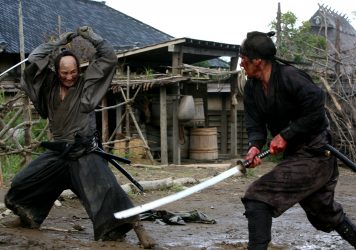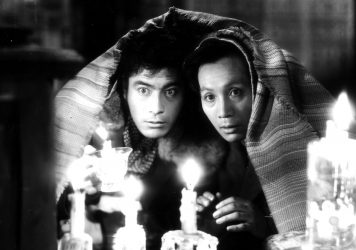Takashi Miike follows up his blood-pumping samurai blitzkrieg 13 Assassins with this talky and tiresome period drama.
After the unbridled ecstasy of Takashi Miike’s blood-pumping samurai blitzkrieg, 13 Assassins, expectation is white hot for this 3D remake of Masaki Kobayashi’s exquisite 1962 film of the same name. Yet while there’s much to admire in this traditional tale of a young warrior’s revenge against a feudal lord, this laborious, wordy drama is criminally light on titillation.
The title (translated from the Japanese Ichimei, meaning ‘One Life’) refers to an ancient disembowelment ritual known as seppuku, which is played out in a lip-biting opening scene that turns out to be something of a false promise, because that’s essentially where the action ends.
A palpable tension spits and bubbles tantalisingly below the surface throughout, but it’s never quite brought to the boil. Instead a thick patchwork of extended expositional flashbacks weighs heavy on the drama, Miike eschewing his signature flourishes of visceral action and playful humour to a fault.
Miike displays both versatility and a profound affinity with the slow-burning elegance of the godfathers of the genre, Akira Kurosawa and Yasujirō Ozu. But while this is an intelligent and well-crafted period piece, a drop more claret and lot less chit-chat certainly wouldn’t go amiss.
Published 4 May 2012
Takashi Miike follows up 13 Assassins with another samurai epic.
Gashomon.
Seek out Kobayashi’s superior original instead.

By Anton Bitel
Takashi Miike’s magnificent 13 marks both the end of an era and the boundary of a genre.

By Amandas Ong
The Japanese master’s 1951 film Hakuchi is a celebration of humanity and its failings.